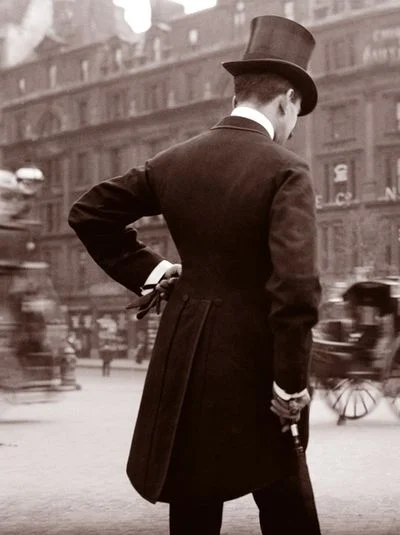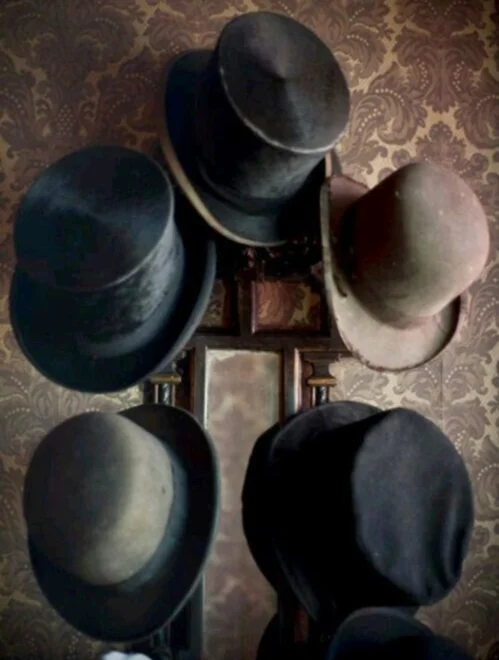Manners vs Etiquette
Most people confuse manners and etiquette. Etiquette, as Wikipedia defines it is “a code of behavior" that delineates expectations for social behavior according to contemporary conventional norms within a society, social class, or group.” If you ask me, etiquette allows people to feel secure that they are acting inside parameters that are considered acceptable by the group they are engaging. Etiquette usually is conduct used in ceremonial or more formal settings, no matter what society or group one is in.
Manners is defined as the “prevailing customs of polite comportment” among a people, class, or group. In my mind, manners is more about how you treat others, while etiquette is about how you act in a given circumstance. Etiquette involves what clothes you wear, which utensil you use during a formal meal, and the like, while manners involves holding a door open for an elderly person, or pulling a chair out for a lady, or letting another person go ahead of you in line just to be kind.
When it comes to etiquette, your thought will center upon how you are acting. When manners are involved, your thought is to make another person feel cared for. “It’s not about me; it’s about you!"
Good etiquette and good manners are learned skills. They are available to all people without cost, although you will have to have a teacher or a book to guide your learning. Parents are often the best teachers, and it is a gift if the learning is done within the home. It is wonderful if a child is exposed to the teaching of manners and etiquette in their formal schooling, but it is not a required subject in most school systems. Often it is taught in special classes.
Because this blog discusses what it means to be a gentleman, I will be writing about both manners and etiquette within many of my posts. A gentleman is distinguished by his treatment of others. His understanding of etiquette is a part of his desire to be comfortable in every social situation. We will take a look at what all of this means both for an individual and for society. I hope you will ask questions or join in the discussion.
Here few examples of most common Etiquette and Manners
ETIQUETTE it's about rules:
- Table setting
Here an easy ways to remember. Also any time you momentarily step out from the table remember to leave the napkin on the chair, not on the table unless you are done with dinner. Reason: nobody wants to see a used napkin in from of them while they are still eating.
More about table etiquette click here: Understand your table setting
- Cough on your left hand; usually the right hand is for social use: It’s not only etiquette but also good manners and required sanitary practice to cover your mouth when you cough or sneeze, and you always want to use the left hand, the person hand, rather than the right hand, the social hand. The reason is simple politeness and also to limit transmission of disease; you don’t want to sneeze into one hand, then absentmindedly use that palm to shake hands with a friend, colleague or a person you just met or leave germs on door handles or the like.
- Remember how to enter and exit your seat at a table: Remember to approach your chair at the table from the left-hand side and exit on the right (if everybody would correctly apply this, it is the way to avoid collisions); any time you have to step away from the table you don’t need to mention why, just say “excuse me” and go.
- Dress Code: It is always important as a host to specify how would you like your guests to dress to attend an event so that they are not going to feel uncomfortable. As a guest, you should respect the wishes of the host by trying your best to follow the stated manner of dress. In case you are not sure about the meaning of some of the dress codes you may find on an invitation, I have included a guide to each dress code here.
MANNERS – It’s about feelings:
First and foremost, your mood should not dictate your manners
- Punctuality: It is essential for any gentleman to be on time. It shows you are reliable and that you are respectful of other people's time. It can happen that each of us may be late for one reason or another but it is really important to let the other person know that you will be late as soon as possible. You will save yourself many difficult explanations if you plan ahead and are punctual.
- Handshake: A handshake says a lot about your character. Make sure your hand is straightforward; you meet the other person in the middle and don't pull towards you. Your grip should be firm but not aggressive. If your hand is sweaty, wipe your hand on your thigh before engaging (or better yet, wipe it in your jacket or pants pocket to be more discreet about it).
- Thank you note: You always want to acknowledge your gratitude for any gift, time, or advice you may receive. Again, it shows the person you are sending it to that what they did for you was truly appreciated.
- Open doors: Opening a door for someone is an act of common courtesy. For a gentleman, opening a door for a woman is not because he thinks she can't do it, but because he respects her and wants to show that respect.
- Stand up for a woman at a restaurant: In the past, the majority of people in a restaurant were men, so if a woman stood up she would attract a lot of attention and feel uncomfortable because of it. By standing up as well, a gentleman could take that attention, making her feel less exposed. It was an important role then, and it is still a nice touch of courtesy now. Of course, if you are with friends at home, you don't have to worry about it.
- Chew with your mouth closed: A gentleman never talks with his mouth full or chews his food loudly. I can assure you, no one has any interest in seeing the food in your mouth or hearing you enjoying it.
- Help a woman put her coat on and off: This is a sign of respect and a gentle act; most likely a woman has a purse, and putting on her own coat becomes awkward. By helping the lady with her coat, a gentleman will make the entire process easier and more pleasant for her.
- Walk on the side of the walk nearest the road: The idea is that the gentleman will stand guard between a woman and any water that might splash up from a puddle as a car passes through it. Even when there are no puddles to concern you, do this as a form of protection.
- Everyday common consideration: Awareness of others is a quality that any person should have, but for a gentleman it is a must. Anything that would make anybody's life easier or anything that shows respect is considered good manners
- RSVP to accept or decline an invitation: There are so many things a host is going through to make sure that his guests are going to have a great time, from the perfect venue, the choice of food and entertainment and decorations, coordinating possible transfers for guests, etc.; the least you can do is spend two to five minutes of your time to let the host know if you will be there or not. Beverage, food and seating needs are set from the count of people that will attend the event, so your RSVP makes the difference.
- Don’t gossip: Gossiping is purely an interpretation of a person's life. By doing it, you will always give the impression of not being trust-worthy. The people you are talking to may think you will do the same about them as soon as they are not present, and they are probably right.
- Never judge: This, to me, is the most difficult one. It is very human to be judgmental, but something I learned in life is that you never know where somebody has been (or what they have gone through), where he/she is now (what is going on in their life) and where he/she has to go.
- Respect others: This should be your life goal, no matter what you do, whom you meet, or what circumstances you find yourself in, rule number one for a gentleman (and it should be the same for every human being) is to RESPECT OTHERS. Treat other people as you would like to be treated.
These are some examples of refined manners that many men seem to not understand or pay attention to in today’s world. I think society is the worse for it. Treating others well and knowing how to act in society makes the world a better place for us all. I will address more of this in the Manners and Etiquette section.







